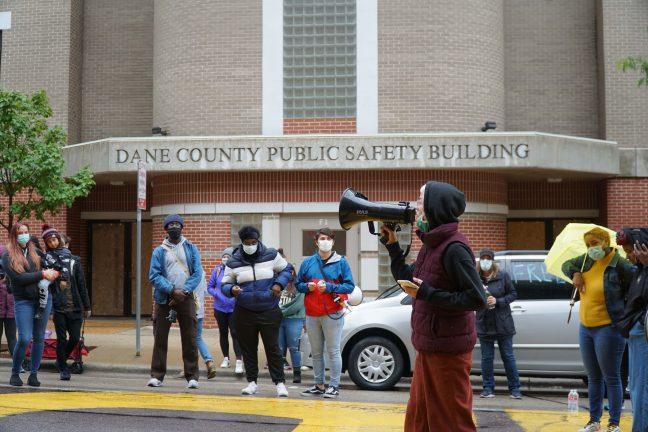Crime and public safety have been a focus for Republican campaigns in Wisconsin’s major elections this season. In the senate race, Ron Johnson and Mandela Barnes are sparring over the debate to eliminate cash bail, with Johnson, the Republican incumbent, claiming the plan releases dangerous criminals onto the street.
In the race for governor, Tim Michels has challenged incumbent Evers on the topic of parole. In September, Michels published a letter to Evers encouraging him to stop all paroles in the state of Wisconsin, which by law is illegal for a governor to enforce.
The parole system in Wisconsin is uniquely exclusive — as it stands, only criminals convicted of a crime before December 31, 1999 are eligible for parole. Those who committed a crime before that date can be placed on parole once they have served two-thirds of their sentence according to Wisconsin law. If a criminal is released before that date, the Wisconsin Parole Commission must oversee the release through a process called discretionary parole.
This cut-off is due to a truth-in-sentencing law passed in Wisconsin which abolished parole for those who committed a crime after 2000. Governors are only involved in the process by appointing chair members to the Wisconsin Parole Commission, but are unable to make any decisions on who is given parole and who is not.
Michels made it clear in his letter that Gov. Evers has been too lenient with the amount of discretionary parole given in the state, accusing him of coddling dangerous criminals by releasing them early from prison despite Evers’s vehement denial of this idea.
Parole should continue to be an option for Wisconsin inmates. Those who have committed a crime before 1999 and impressed the parole board in terms of a positive record and the completion of all necessary prerequisite programs have no reason to remain in prison.
Although there is undeniable potential for repeat offenders when people are released on parole, the risk is fairly low. From 2019 to September 2022, only 10.4% of those released on discretionary parole in Wisconsin had a “potential but not confirmed violation of the law,” according to a the Milwaukee Journal Sentinel article. This indicates that recidivism of those granted discretionary parole is relatively low in Wisconsin.
There are also benefits to offering parole in Wisconsin for the state. The most obvious of these is the inherent reduction in the prison population. Each year, Wisconsin taxpayers pay $43,680 to keep a single male prisoner incarcerated. The rate for female prisoners is even higher, at $49,515 per prisoner. Thus, the higher the prison population, the more money taxpayers are expected to provide for these costs. Additionally, parole encourages prisoners to reform in prison and maintain good behavior to appeal to the Wisconsin Parole Committee.
This does not mean parole should be considered unanimously. There are certain people who should be prioritized for parole over others. Those who committed nonviolent crimes or minimal violent crimes and show great improvement should certainly be given preference over more violent criminals or those who do not show improvement. But those decisions are in the hands of the Wisconsin Parole Committee.
Parole is not an end-all-be-all issue. There is a lot of nuance regarding the process of parole. Regardless of their political identification, Wisconsin citizens do not want dangerous criminals released on the streets before they have shown significant improvement or served a respectable portion of their sentence. Public safety is a big concern for everyone in Wisconsin, but ending parole is not the solution.
If there are particular criminals who violate their parole and commit further offenses, the Wisconsin Parole Committee should be investigated and reevaluated — not the idea of parole themselves.
Although there are benefits and hazards to reducing the prison population through parole, the answer to this complicated issue is not to halt all paroles as Tim Michels wants. Instead, the solution should be to evaluate the Wisconsin Parole Commission’s previous performance and ensure that prisoners who deserve to be released are given the chance to appear before the committee while those who do not deserve this privilege finish their sentence.
Emily Otten (elotten@wisc.edu) is a junior majoring in journalism.


